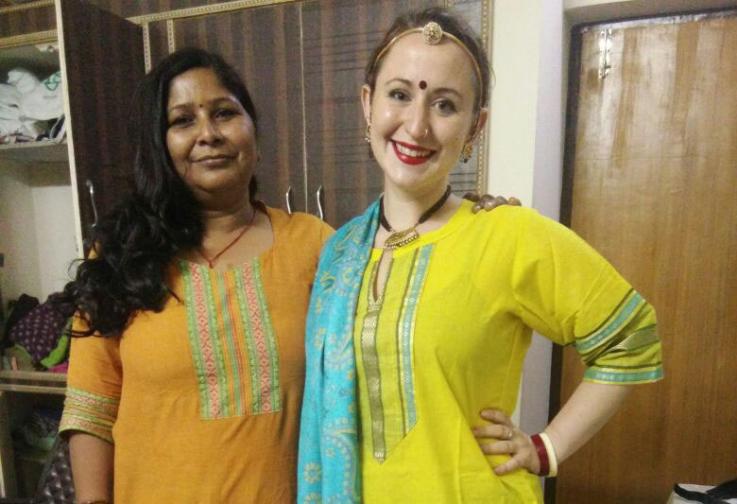
From the time she was 11 years old, Halima Freudberg dreamed of serving in the Peace Corps. Hailing from Philadelphia, she studied Psychology and Gender and Sexuality Studies at nearby Bryn Mawr College. After graduation, Halima realized her dream of joining the Peace Corps and travelled to a rural village in Cameroon. As a health extension volunteer Halima’s projects included malaria prevention, sexual and reproductive health promotion, and women’s literacy. She collaborated with local and global organizations throughout her service, including the United Nations Population Fund and the Cameroonian Red Cross. During her time in Cameroon, Halima fell in love with global health and decided to pursue a master’s degree in public health.
“I came to the University of Washington (UW) because of the cohort model, the strong sense of community, and the amazing research and work opportunities,” says Halima. At UW, Halima sought a research project that combined her interests in health and social justice initiatives and happily found the Center for Health and Social Justice (CHSJ), an Indian organization based out of New Delhi, led by UW Clinical Faculty member, Dr. Abhijit Das.
Halima collaborated with CHSJ to evaluate their Yuva Samanta Ki Oor (translates to Youth for Gender Equality) project. The one-year project included forming education groups with young boys and men in villages in the Indian state of Rajasthan, with discussions focused on gender, violence, and sexuality. The boys and men then identified issues facing their respective villages regarding gender inequity and worked with their communities to resolve them. The project aimed to encourage a shift towards gender equality, with a longer-range goal of improving health outcomes among women in these communities. The project had an additional goal of other researchers and organizations using it as a model about a community-based approach to gender equality programming and violence prevention.
After the project was complete, Halima joined CHSJ in New Delhi, India to evaluate the implementation process and impact of the project. Halima, together with CHSJ employees and a research assistant/translator, travelled to Rajasthan and spent six weeks collecting quantitative and qualitative data. After her time in the field, she returned to New Delhi and shared her preliminary evaluation findings with the CHSJ team. Even though the implementation of this project lasted one year only due to funding constraints, Halima found village-wide behavior changes, such as the abolishment of child marriage in one case, and the normalization of girls’ secondary education in another. She is currently developing a manuscript to submit for publication with her collaborators from the CHSJ and the UW. Halima loved living in India, and found this work and project to be extremely rewarding.
Halima will graduate from the MPH program in the Department of Global Health this quarter. She plans to stay in Seattle and hopes to get a job pursuing her passions of working to strengthen health systems, reduce gender inequities, and decrease violence against women.
You can reach her at www.linkedin.com/in/halima-freudberg.
Halima's fieldwork was funded by a Thomas Francis, Jr. Global Health Fellowship through the UW Global Health Resource Center.